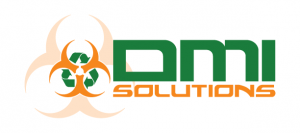Call us anytime
+1 800-455-7747
Email Us
Call us anytime
Email Us
Improper management of hazardous waste may pose a serious threat to humans, animals, and the environment.
Considering the harmful effects of hazardous waste on humans and the environment, the US Congress passed the Resource Conservation and Recovery Act (RCRA) in 1976 to be regulated by the Environmental Protection Agency. Its purpose was to set up a framework for proper hazardous waste management.
Hazardous waste is a category of waste that can affect human health in a non-infectious way.
According to the EPA, hazardous waste contains dangerous properties which may infect humans or harm the environment. The generation of hazardous waste happens in different forms, such as harmful chemicals, unused drugs, discarded blood, od, sharps (Needles, lancets, and scalpels), and more.
It could be difficult for waste generators to know which categories of waste they have and should hand over the responsibility to manage any hazardous waste medical waste disposal company.
This process of identifying biohazard waste can be a bit complex. That’s why EPA encourages waste generators to look at the issue using the following ways:
The EPA outlines the characteristics of biohazardous waste into four categories: toxic, ignitable, corrosive, and reactive.
The toxic characteristic is aligned with wastes that can cause harm when ingested or absorbed. Toxic wastes can pose a serious threat to humans and the environment in the case of improper disposal. These wastes can leach and contaminate groundwater.
The wastes that have flammable or ignitable characteristics are aligned with wastes containing liquids with flashpoints under 60 °C. Non-liquid waste can cause fires in certain circumstances, such as flammable compressed gases and oxidizers.
The corrosive feature is aligned with aqueous wastes with a pH level of less than 2 or higher than 12.5 or depends on its capacity to corrode steel.
The waste with reactive characteristics could be unstable in normal circumstances, including the substances that will potentially react with water, materials that emit toxic gases, and the ones that can detonate or explode under normal situations or if heated.
The concerns regarding hazardous waste management issue cropped up in the mid-20th century in the United States.
Increasing waste production, reducing disposal capacity, sky-rocketing disposal costs, and the public demand for new disposal facilities forced the authorities to initiate a waste management program.
Now, in the 21st century, the volume of waste has increased significantly and poses more challenges for communities. There is an increasing need to develop cost-effective and environment-friendly waste disposal solutions.
To find a solution to this issue, EPA and RCRA set up a framework for properly managing hazardous waste. Additionally, EPA has rolled out a regulatory program to ensure the safe management of hazardous waste.
The program takes a “cradle to grave” approach, which means from the time when waste is produced, transported, stored, disposed of, and until its treatment.

The EPA Waste Management Program (Source: epa.gov)
The process goes like below:
Hazardous waste generators are the first point of origin of the waste management program. All generators need to identify if their waste is hazardous and should oversee its ultimate treatment.
Once health or other facilities produce hazardous waste, a transporter or a professional medical waste management company may move the waste to a waste disposal facility to recycle, store, dispose of, and treat the waste.
EPA has tried to implement regulations for hazardous waste management for conserving resources while ensuring the safeguarding of human health and the environment.
It is possible to recycle various categories of hazardous wastes safely while other waste can be treated and disposed of in landfills or using incinerators.
DMI Solutions is a leading medical waste management company, and we will take full responsibility for picking, transporting, and disposing of regulated medical waste. We can also guide you about disposing of other hazardous waste.
Contact us today to learn more about our services by dialling +1 800-455-7747. You can also drop an email at info@dmisolutionsinc.com.

© Copyright 2020 by DMI Solutions INC